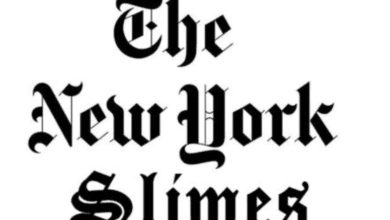Germany Likely In Recession, Central Bank Partially Blames Green Agenda

Germany appears to be in a technical recession thanks in part to climate policies, according to the country’s central bank.
The German economy has struggled since 2022, flashing strong indicators that its economically-crucial manufacturing sector is hollowing out amid a prolonged energy crisis. The Bundesbank, Germany’s central bank, said Monday that while the economy’s sluggishness may meet the technical definition of a recession, the institution does not presently believe that there are credible indications that the German economy is experiencing the deep and prolonged economic decline colloquially associated with a state of recession.
“German economic output contracted in the final quarter of 2023, according to the February Monthly Report. Fourth-quarter real gross domestic product (GDP) fell by a seasonally adjusted 0.3% on the quarter according to the Federal Statistical Office’s flash estimate, after virtually stagnating in the first three quarters of 2023,” the Bundesbank said in a statement. “Bundesbank economists believe that uncertainty about transformation and climate policy is also likely to have weighed on economic activity.”
Germany Rules Out Keeping Nuclear Power On Despite Energy Crisis https://t.co/dYUfJrJhQK
— Daily Caller (@DailyCaller) September 8, 2022
Germany’s climate agenda has the country aiming to generate 80% of its electricity from sources like wind and solar by 2050, according to the Organization for Economic Cooperation and Development.
In the third quarter of 2023, the German electricity sector produced 20% less power than it did in the same period in 2022, according to the GMK Center. In terms of demand, Germany’s 2023 energy consumption checked in at about 8% lower than 2022’s levels, and approximately 25% lower than 1990 levels, according to Clean Energy Wire.
The country’s consumer price index for electricity was nearly 50% higher in December 2023 than in January 2021, according to data from Eurostat.
Germany has spent of hundreds of billions of euros to push a broad green energy transition, but the country is on track to miss its climate targets despite that spending. Officials moved to shutter the country’s remaining nuclear power plants in April 2023 amid serious concerns about the long-term energy supply.
The Bundesbank is also projecting that economic output will decline again in the first quarter of this year, according to its statement. The central bank also acknowledged that a growing share of manufacturers — 37% of all such firms as of the end of 2023 — are reporting shortfalls of orders.
The German manufacturing sector has posted either flat growth or contracted for four straight quarters, a dynamic which elevated interest rates have not helped, according to Reuters.
Numerous manufacturers and industrial companies have warned for months that the deteriorating situation in Germany may force them to shift their operations elsewhere, and some have already initiated this process, according to Bloomberg News. A collapse in German manufacturing would be devastating for the country’s economy, once widely considered the powerhouse of Europe, given that the sector has historically provided about 20% of annual GDP, according to Bloomberg News.
Germany’s economic woes appear to be shaking up the political scene, as well. The Alternative for Germany (AfD), the leading right-wing populist party, has seen its popularity more than double since the Ukraine war started and kicked the country’s energy problems into overdrive, according to polling data aggregated by Politico.
The Bundesbank did not respond immediately to a request for comment.
Content created by The Daily Caller News Foundation is available without charge to any eligible news publisher that can provide a large audience. For licensing opportunities of our original content, please contact licensing@dailycallernewsfoundation.org




